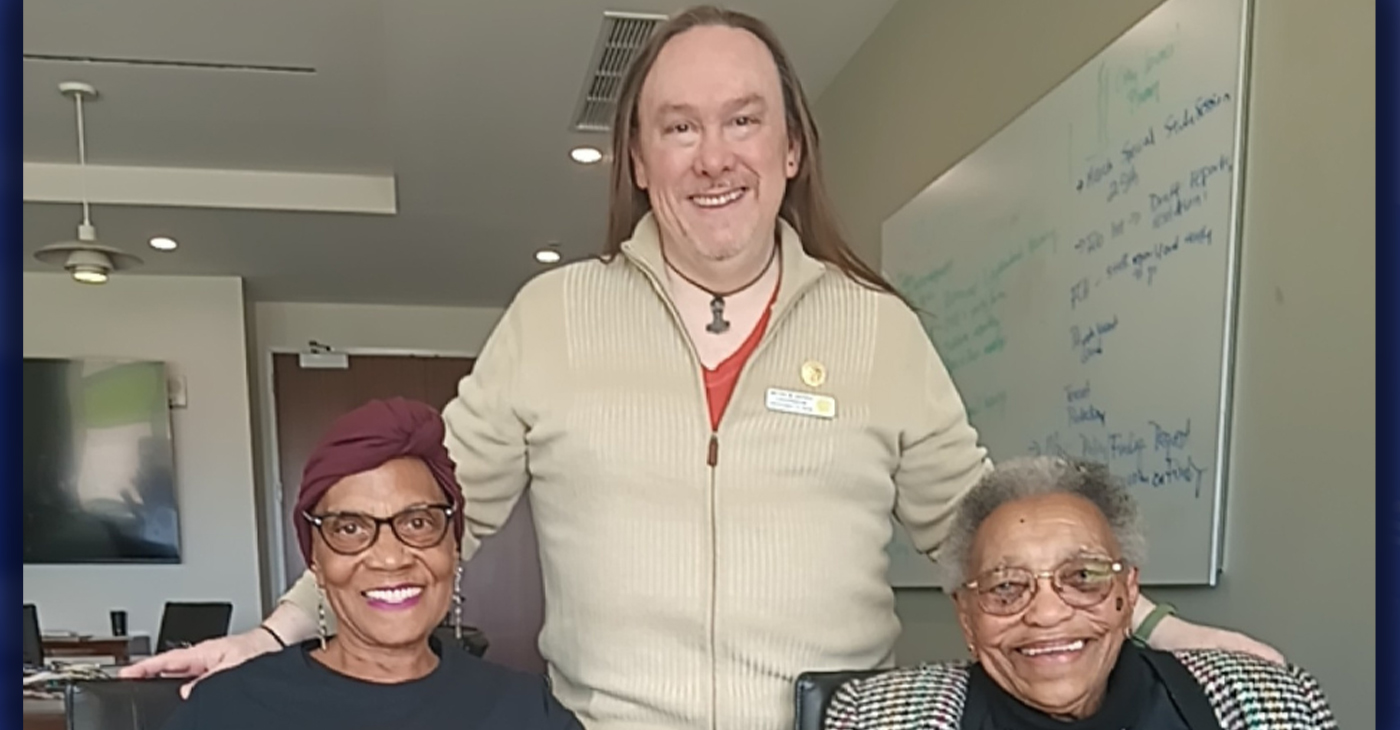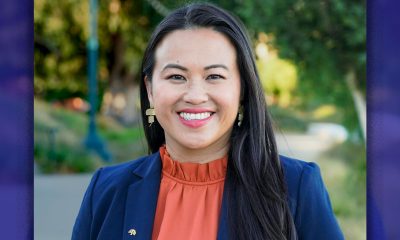City Government
5,750 Market Rate Units, No Affordable Housing Yet for Coliseum City
While many people are looking at the proposed Coliseum City development as the best and last chance to keep the Raiders and A’s in town in exchange for glitzy new stadiums, not as much attention has been given to the investment possibilities that may be just as, or more important, to developers and their hedge fund backers – market rate housing that could go for $3,000 or more a month per unit and commercial development.
Alongside the stadiums and sports-related entertainment and hotels, the goal is to “create a new residential neighborhood with an array of housing options, ” according to the draft Coliseum Area Specific Plan.
The plan would change zoning and land use guidelines for the 800 acres that include the Coliseum, the area around the Coliseum BART Station and the Oakland Airport Business Park located more or less between the Wal-Mart store next to Hegenberger Road and the 66th Avenue exit on Highway 880.
What is at stake for Oakland in this project is not just the promise of future jobs, which may or may not materialize, but existing jobs.
According to many community activists and business observers, if the general plan and zoning proposals associated with the Coliseum Area Specific Plan are allowed to go ahead, they would effectively eliminate the city’s only dedicated office-industrial park.
By amending zoning to “Mixed Use” the plan could either incorporate tech campuses’ desire to house high end workers in luxury condos close to their work place, or alternately could threaten many of the business types the plan actually encourages to stay and/or relocate there, including technical campuses with R&D, administration and manufacturing on site, production such as high value printing operations, specialty artisan food production, wholesaling for domestic markets and global export products such as wine, specialty agricultural and marine products.
The result would potentially push out many of the 150 businesses there now, which employ over 8,000 workers Many of these are good stable jobs, such as warehouse, that pay $50,000 to $75,000 a year. Such jobs are the city’s future, and the subject of multi-million dollar regional studies such as the Regional Goods Movement Study, and the Design It Build It Ship It Logistics & Advanced Manufacturing study.
The way the proposed general plan amendments would work, knowledgeable observers say, is that when a major part of the industrial park is changed by to allow retail and residential units, the market value of the land would more than double.
Some businesses would leave because rising market values would encourage them to sell their properties, and others would be increasingly impacted by nearby residential uses that are not very compatible with production, warehouse and other industrial uses, with their noises, smells and truck deliveries.
Revolution Foods, headquartered in the Airport Business Park, is one of the businesses that could be adversely affected by residential development. According to Fortune, the company serves over 200,000 healthy meals daily to school districts across the country and has a total of over 1,0000 employees, at an annual gross revenue of about $70 million.
At present, the Environmental Impact Report (EIR) calls for the project to contain 5,750 units of housing, including, 1,700 units in the area between Edgewater Road and the San Leandro Estuary where the city’s highly used corporation yard is located.
According to city staff and the proposed EIR, residential housing use would not be permitted in most of the business park. Industrial land use zoning will be maintained, they say. So, there is nothing for local businesses and workers to fear.
But all may not be what it seems.
The proposed general plan amendments and the zoning changes in the EIR are two different documents that contradict each other for the areas known in the plan as CO-3 & CO 4.
The proposed general plan amendment to Regional Commercial (CR)would allow 125 residential units/gross acre, and both CR and Business Mix (the current non-residential designation) allow residential units.
While the plan has a goal of a minimum of 15 percent of affordable housing units, city staff says that building units that can be affordable to Oakland residents will depend on future negotiations between the City Council, investors and a developer.
There is no ironclad promise of affordable housing built into the plan at present.
According to city staff, the plan to move the city’s corporation yard would have to overcome many hurdles and is not in the cards at present.
The corporation yard and all its employees would have to be moved at a cost that is not yet calculated and to a site that has not yet been determined.
In addition, the property is owned by the Port of Oakland and leased by the city – which would have to find a way to obtain the land from the port. By law the port must charge the land’s full market value.
The port has never said it favors this change and traditionally has wanted no residential at all in the Business Park.
Yet the general plan and zoning changes have forged ahead despite community and business owners’ complaints that they have not been involved in the process.
City staff have repeatedly said in public: “We have our marching orders.” But they have not explained from whom these orders are coming.
The specific plan passed the Planning Commission last week and is scheduled to be heard next Tuesday, March 24, 1:30 p.m., at the meeting of the Community and Economic Development Committee at City Hall.
From there, it will go to the City Council.
Activism
OCCUR Hosts “Faith Forward” Conference in Oakland
The conference featured Congresswoman-elect Lateefah Simon, who will begin her term representing California’s 12th Congressional District in the U.S. House of Representatives in January.
Simon was honored with a special recognition from OCCUR for her civic and nonprofit leadership.

By Carla Thomas
The Oakland Citizens Committee for Urban Renewal (OCCUR) hosted its Faith Forward 2024 Conference on Nov. 8 at Resurrection Church in Oakland.
The conference featured Congresswoman-elect Lateefah Simon, who will begin her term representing California’s 12th Congressional District in the U.S. House of Representatives in January.
Simon was honored with a special recognition from OCCUR for her civic and nonprofit leadership. During her remarks, She commended nonprofits making a difference, and shared how she looked forward to representing Oakland and surrounding areas.
Simon also encouraged attendees to continue fighting despite their concerns about the presidential election results. She also cautioned that there may be resources that are discontinued as a result.
“We know the assignment. We have many of the resources right within our own community, and we will be ok,” Simon assured the audience.
The conference led by OCCUR president, Dr. David B. Franklin, also featured panels on funding opportunities, case studies, economic development, sustainable housing solutions, and organizing for action.
“In order for organizations serving the community to thrive, everyone must collaborate, share resources, and not operate in silos,” said Franklin.
Speakers included San Francisco Foundation CEO, Fred Blackwell, San Francisco Foundation FAITHS Program Director Dr. Michelle Chambers, and Kingmakers of Oakland Founder, Chris Chatmon. Guests were briefed on how Kingmakers of Oakland has gone from a budget of zero to several million and is set to acquire 200 acres of property to expand their programs serving young boys. The leadership at the San Francisco Foundation encouraged nonprofits, churches, and community leaders to work together, especially when donations and funding numbers are lower.
Ben Bartlett of Berkeley City Council; Trevor Parham, CEO of Oakstop; and CEO of the Lao Family Community Development, Inc., Kathy Chao Rothberg, inspired attendees with stories about their journeys in the nonprofit sector.
Additional speakers included Deka Dike, CEO of Omatachi; Landis Green, CEO of DGS Strategies; Sasha Werblin, Director of Economic Development, LISC Bay Area; Oakland City Councilmember Treva Reid; Faith and Justice Organizer of East Bay Housing Organizations, Ronnie Boyd; and Todd Bendon, Executive Director of Faith in Action East Bay; among others.
The event allowed community leaders, faith-based leaders, and nonprofits to gain Insight on how to strengthen their profits financially, and communally.
OCCUR has served the community for over 70 years supporting the wellbeing of historically marginalized communities with collaborative strategies. For more information visit occurnow.org
Bay Area
Richmond’s New Fire Chief Sworn In
“Chief Osorio rose up through the ranks in the Richmond Fire Department over the last 21 years before being elevated to chief,” noted Harpreet Sandhu, field representative for Congressmember John Garamendi,. “He joined the department in 2002 and has served in multiple roles including firefighter, engineer, captain, battalion chief, training director and deputy fire chief.”
By Mike Kinney
The Richmond Standard
Richmond Fire Chief Aaron Osorio was sworn into his new role in a well-attended ceremony at Richmond City Council Chambers on Friday, Nov. 15.
The crowd included Osorio’s family and friends, rank-and-file Richmond firefighters, fellow fire chiefs from Bay Area agencies, elected officials and community members.
Richmond City Manager Shasa Curl provided an introduction and acknowledged Chief Osorio’s “heroic service to Richmond.”
Harpreet Sandhu, field representative for Congressmember John Garamendi, presented the chief with a Congressional Commendation, citing his 23 years of serving in the fire service in Richmond in numerous positions.
“Chief Osorio rose up through the ranks in the Richmond Fire Department over the last 21 years before being elevated to chief,” Sandhu noted. “He joined the department in 2002 and has served in multiple roles including firefighter, engineer, captain, battalion chief, training director and deputy fire chief.”
The chief’s wife, Maria, and two sons Roman and Mateo helped perform the badge-pinning.
Richmond City Clerk Pamela Christian then conducted the swearing-in ceremony.
Chief Osorio thanked his family, colleagues, and city for their support, calling it “very humbling” to take on leadership of an “amazing organization.”
Once the ceremony was done, the chief stated, “I’m ready to get to work.”
Activism
Richmond Seniors Still Having a Ball After 25 Years
The Senior Winter Ball is a symbol of the Commission on Aging’s broader mission of providing enriching life experiences to the local senior community, particularly those in need of them. “Besides the social activities, we focus on issues such as housing, transportation and health,” said Michelle Hayes, the commission’s chairperson. “We get things done for our senior population.”

By Mike Kinney
The Richmond Standard
For a quarter century, seniors in the local community have had a prime location in the heart of the city to gather and celebrate the holidays.
That is courtesy of the annual Senior Winter Ball, which will mark a milestone this year when it takes place for the 25th time. The gala will run from 6 p.m. to 10 p.m. at Richmond Memorial Auditorium.
The holiday tradition was started by the City of Richmond’s Commission on Aging in 1999 to entertain and celebrate seniors. The event also raises funds for local senior causes. Attendees wear their finest attire and enjoy dinner and dancing.
“It’s so exciting to see all of the gala attendees all dressed up and seeing their lifetime friends and making new friends as well,” said Bryan M. Harris, secretary for the Commission on Aging. “They will reminisce about old Winter Ball memories and at the same time create new ones.”
Richmond’s very own Chef Josephine Orozco of El Sol Catering will serve at this year’s anniversary dinner. The gala will also feature the band Top Shelf Classics, which plays hits from the 50s through the 80s and has been the gala’s annual performer for the last decade.
The Senior Winter Ball symbolizes the Commission on Aging’s broader mission of providing enriching life experiences to the local senior community, particularly those in need of them.
“Besides the social activities, we focus on issues such as housing, transportation and health,” said Michelle Hayes, the commission’s chairperson. “We get things done for our senior population.”
Myrtle Braxton, 97, has served on the commission for 17 years and is its current vice president. She says her goal is to increase the quality of life for seniors through safe social events.
“So many seniors are isolated and are sometimes forgotten by society,” Braxton said. “So, our commission is their advocate and makes sure they are not left behind.”
Tickets to the 25th Silver Anniversary Annual Senior Winter Ball are $45 per person or $360 for a table of eight. They are available in person via the Main Recreation office at 3230 Macdonald Ave., via email at csdregistration@ci.richmond.ca.us or by phone at 510-620-6793.
-

 Alameda County4 weeks ago
Alameda County4 weeks agoAlameda County District Attorney Pamela Price Announces $7.5 Million Settlement Agreement with Walmart
-

 Activism3 weeks ago
Activism3 weeks ago‘Jim Crow Was and Remains Real in Alameda County (and) It Is What We Are Challenging and Trying to Fix Every Day,’ Says D.A. Pamela Price
-

 Bay Area4 weeks ago
Bay Area4 weeks agoIn the City Attorney Race, Ryan Richardson Is Better for Oakland
-

 Activism3 weeks ago
Activism3 weeks agoOakland Post: Week of October 30 – November 5, 2024
-

 Alameda County3 weeks ago
Alameda County3 weeks agoD.A. Price Charges Coliseum Flea Market Vendors in Organized Retail Theft Case
-

 Activism3 weeks ago
Activism3 weeks ago‘Criminal Justice Reform Is the Signature Civil Rights Issue of Our Time,’ says D.A. Pamela Price
-

 Activism2 weeks ago
Activism2 weeks agoLIVE! — TOWN HALL ON RACISM AND ITS IMPACT — THURS. 11.14.24 5PM PST
-

 Activism4 weeks ago
Activism4 weeks ago“Two things can be true at once.” An Afro-Latina Voter Weighs in on Identity and Politics






















































